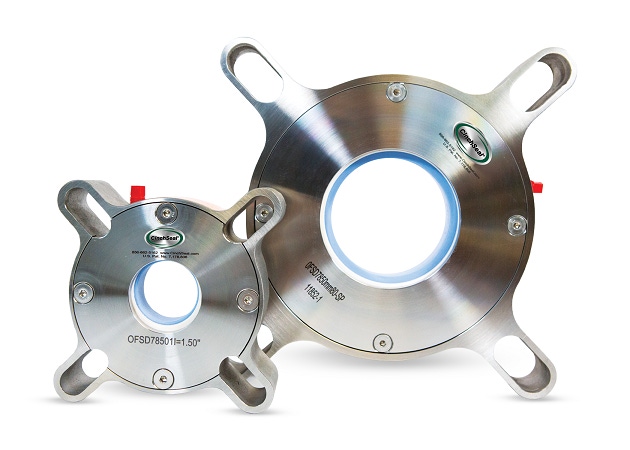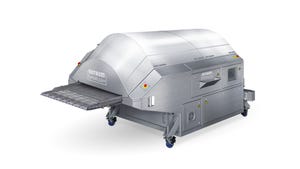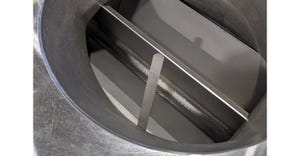April 13, 2020

Business is booming in the protein powder industry. As of 2019, according to MarketsandMarkets, the value of the protein supplements market worldwide was $49.82 billion. It’s expected to grow at an annual rate of 6% through 2025. That’s a lot of protein powder. Manufacturers of the protein supplements will need to gear up to accommodate the growth.
Why is this industry so important these days? Here are several reasons:
* People prefer healthy diet and nutritional food, filled with amino acids, minerals, and dietary fiber (present in a variety of proteins)
* People want to prevent exposure to gluten, lactose, and other types of allergens
* People substitute meat with dairy, egg, and whey protein for cardiovascular health
* People want superior personal care and healthcare products – with enhanced ingredients for hair and skin
What manufacturing industries are affected?
* Healthcare foods, feed, and sports beverages
* Pharmaceuticals
* Cosmetics and personal care
Manufacturing in those industries uses process equipment such as mixers, blenders, agitators, dryers, and boilers to extrude, separate, concentrate, evaporate, and dry the final product. Along the way, manufacturers should keep a few important considerations in mind:
* How to make processing as efficient and productive as possible
* How to make sure high product safety standards are in place and working
Why Rotary Shaft Seals?
Maintaining and increasing high production levels while ensuring product safety isn’t just about bigger and better processing machinery. In fact, one of the keys to success might be held by a relatively small player that’s often overlooked—until, of course, it quits working. That unheralded team member is the seal—in particular, the rotary shaft seal or radial shaft seal—that keeps the product where it belongs and protects it from contamination.
Making protein powder is another type of food processing. In this case, proteins contain many amino acids. So it requires that raw materials move through a system that separates out the target material. Moving the material calls for a variety of conveyors whose construction includes a turning shaft. That shaft must be sealed to prevent product from leaking out and contaminants from leaking in.
Over the years, different sealing methods have been used: lip seals, mechanical packing, and rotary shaft seals. They are all designed to prevent leakage and contamination of the product being mixed or conveyed. However, there are major differences in the way these seals do their job and how well they do it.
Lip Seals and Mechanical Packing
Lip seals use various types of lips to prevent leakage. The rotating shaft generates a hydrodynamic action that helps to hold the seal, although operators must also maintain a thin layer of lubricant between the lip and shaft. The lip makes point contact with the shaft that forms two angles, and it is this contact with the rotating shaft that wears and damages the shaft. That is the major difference between a lip seal and a rotary shaft seal.
Advantage
The biggest advantage of lip seals and mechanical packing used in stuffing boxes is their low cost, making replacements relatively inexpensive (but keep in mind that replacing these and product loss will take away from the initial savings).
Disadvantages
* Lip seals have a comparatively small surface they can grab the rotating shaft with. This design increases the risk of contamination and leakage in all applications of lip seals. Eventually, contamination creates a groove in a shaft and destroys bearings and gearboxes due to particle contamination.
* The small surface area of the lip also makes lip seals wear out more quickly, especially in harsh operating environments. This requires lip seals to be replaced more frequently, eliminating much of their initial cost-saving benefit.
* Lip seals have limited applications as their stationary design causes friction and heat generation. The viscosity of the sealed fluid will directly influence the friction generated in the lubrication film. For low viscosity fluids this can be a serious problem as the lubricant film becomes too thin to maintain the separation of the seal and the shaft.
* Lip seals don’t withstand pressure well, further limiting their usefulness.
* The non-rotating lip seal design can also cause shaft damage in a short period of time.
* Finally, lip seals lack the government certification necessary in meat, poultry, and dairy processing industries.
* Mechanical packing is square braided rope packing that is compressed around the diameter of the shaft in a stuffing box. Packing wears with normal equipment operation and needs to be replaced often, which can be costly.
* When abrasive bulk material is conveyed, it migrates into the seal area and becomes impregnated into the rope packing. The abrasive material starts to wear down the outside diameter of the shaft. The smaller shaft diameter reduces the strength and torque rating of the shaft and makes the sealing surface uneven and difficult to seal.
Advantages of Rotary Shaft Seals
The rotary shaft seals have clear advantages over lip seals and mechanical packing:
* Their rotating design eliminates the risk of shaft damage, inherent with lip seals and mechanical packing.
* Can tolerate shaft misalignment of up to ¼ in., common in bulk handling equipment, without losing its seal. This prevents leaks and material loss.
* Have a larger surface area than lip seals, reducing the chance of contamination and leakage.
* Their self-lubricating design enables a dry-running seal operation, decreasing its wear and tear.
* Can be USDA certified for use in meat, poultry, and dairy applications. In such hygiene-sensitive environments, it is vital to quickly disassemble and clean equipment on a daily basis.
As equipment upgrades and new installations become necessary to keep up with growth, companies in the protein powder industry should keep in mind that a lower price doesn’t translate to ROI value when it comes to deciding between lip seals and rotary shaft seals. The more frequent repairs and replacements of a lip seal and mechanical packing will quickly eat into the initial savings of the purchase price. It is important to consider all costs related to your shaft seal choice when selecting the best solution for your protein processing application.
For more than 25 years, CinchSeal has been providing rotary shaft sealing solutions for mixers, screw conveyors, and all types of bulk-handling equipment. For more information, call 856-662-5162 or visit cinchseal.com.
You May Also Like


